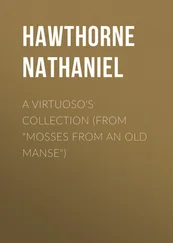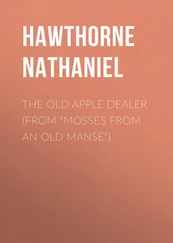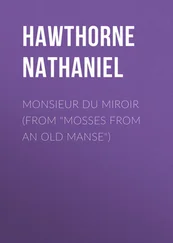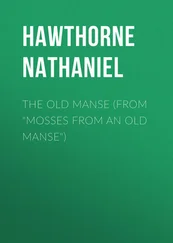Nathaniel Hawthorne - Our Old Home - A Series of English Sketches
Здесь есть возможность читать онлайн «Nathaniel Hawthorne - Our Old Home - A Series of English Sketches» — ознакомительный отрывок электронной книги совершенно бесплатно, а после прочтения отрывка купить полную версию. В некоторых случаях можно слушать аудио, скачать через торрент в формате fb2 и присутствует краткое содержание. Жанр: literature_19, foreign_antique, foreign_prose, на английском языке. Описание произведения, (предисловие) а так же отзывы посетителей доступны на портале библиотеки ЛибКат.
- Название:Our Old Home: A Series of English Sketches
- Автор:
- Жанр:
- Год:неизвестен
- ISBN:нет данных
- Рейтинг книги:4 / 5. Голосов: 1
-
Избранное:Добавить в избранное
- Отзывы:
-
Ваша оценка:
- 80
- 1
- 2
- 3
- 4
- 5
Our Old Home: A Series of English Sketches: краткое содержание, описание и аннотация
Предлагаем к чтению аннотацию, описание, краткое содержание или предисловие (зависит от того, что написал сам автор книги «Our Old Home: A Series of English Sketches»). Если вы не нашли необходимую информацию о книге — напишите в комментариях, мы постараемся отыскать её.
Our Old Home: A Series of English Sketches — читать онлайн ознакомительный отрывок
Ниже представлен текст книги, разбитый по страницам. Система сохранения места последней прочитанной страницы, позволяет с удобством читать онлайн бесплатно книгу «Our Old Home: A Series of English Sketches», без необходимости каждый раз заново искать на чём Вы остановились. Поставьте закладку, и сможете в любой момент перейти на страницу, на которой закончили чтение.
Интервал:
Закладка:
A year or two afterwards I paid another visit to the hospital, and found a new porter established in office, and already capable of talking like a guide-book about the history, antiquities, and present condition of the charity. He informed me that the twelve brethren are selected from among old soldiers of good character, whose other resources must not exceed an income of five pounds; thus excluding all commissioned officers, whose half-pay would of course be more than that amount. They receive from the hospital an annuity of eighty pounds each, besides their apartments, a garment of fine blue cloth, an annual abundance of ale, and a privilege at the kitchen-fire; so that, considering the class from which they are taken, they may well reckon themselves among the fortunate of the earth. Furthermore, they are invested with political rights, acquiring a vote for member of Parliament in virtue either of their income or brotherhood. On the other hand, as regards their personal freedom or conduct, they are subject to a supervision which the Master of the hospital might render extremely annoying, were he so inclined; but the military restraint under which they have spent the active portion of their lives makes it easier for them to endure the domestic discipline here imposed upon their age. The porter bore his testimony (whatever were its value) to their being as contented and happy as such a set of old people could possibly be, and affirmed that they spent much time in burnishing their silver badges, and were as proud of them as a nobleman of his star. These badges, by the by, except one that was stolen and replaced in Queen Anne's time, are the very same that decorated the original twelve brethren.
I have seldom met with a better guide than my friend the porter. He appeared to take a genuine interest in the peculiarities of the establishment, and yet had an existence apart from them, so that he could the better estimate what those peculiarities were. To be sure, his knowledge and observation were confined to external things, but, so far, had a sufficiently extensive scope. He led me up the staircase and exhibited portions of the timber framework of the edifice that are reckoned to be eight or nine hundred years old, and are still neither worm-eaten nor decayed; and traced out what had been a great hall in the days of the Catholic fraternity, though its area is now filled up with the apartments of the twelve brethren; and pointed to ornaments of sculptured oak, done in an ancient religious style of art, but hardly visible amid the vaulted dimness of the roof. Thence we went to the chapel – the Gothic church which I noted several pages back – surmounting the gateway that stretches half across the street. Here the brethren attend daily prayer, and have each a prayer-book of the finest paper, with a fair, large type for their old eyes. The interior of the chapel is very plain, with a picture of no merit for an altar-piece, and a single old pane of painted glass in the great eastern window, representing, – no saint, nor angel, as is customary in such cases, – but that grim sinner, the Earl of Leicester. Nevertheless, amid so many tangible proofs of his human sympathy, one comes to doubt whether the Earl could have been such a hardened reprobate, after all.
We ascended the tower of the chapel, and looked down between its battlements into the street, a hundred feet below us; while clambering half-way up were foxglove-flowers, weeds, small shrubs, and tufts of grass, that had rooted themselves into the roughnesses of the stone foundation. Far around us lay a rich and lovely English landscape, with many a church-spire and noble country-seat, and several objects of high historic interest. Edge Hill, where the Puritans defeated Charles I., is in sight on the edge of the horizon, and much nearer stands the house where Cromwell lodged on the night before the battle. Right under our eyes, and half enveloping the town with its high-shouldering wall, so that all the closely compacted streets seemed but a precinct of the estate, was the Earl of Warwick's delightful park, a wide extent of sunny lawns, interspersed with broad contiguities of forest-shade. Some of the cedars of Lebanon were there, – a growth of trees in which the Warwick family take an hereditary pride. The two highest towers of the castle heave themselves up out of a mass of foliage, and look down in a lordly manner upon the plebeian roofs of the town, a part of which are slate-covered (these are the modern houses), and a part are coated with old red tiles, denoting the more ancient edifices. A hundred and sixty or seventy years ago, a great fire destroyed a considerable portion of the town, and doubtless annihilated many structures of a remote antiquity; at least, there was a possibility of very old houses in the long past of Warwick, which King Cymbeline is said to have founded in the year ONE of the Christian era!
And this historic fact or poetic fiction, whichever it may be, brings to mind a more indestructible reality than anything else that has occurred within the present field of our vision; though this includes the scene of Guy of Warwick's legendary exploits, and some of those of the Round Table, to say nothing of the Battle of Edge Hill. For perhaps it was in the landscape now under our eyes that Posthumus wandered with the King's daughter, the sweet, chaste, faithful, and courageous Imogen, the tenderest and womanliest woman that Shakespeare ever made immortal in the world. The silver Avon, which we see flowing so quietly by the gray castle, may have held their images in its bosom.
The day, though it began brightly, had long been overcast, and the clouds now spat down a few spiteful drops upon us, besides that the east-wind was very chill; so we descended the winding tower-stair, and went next into the garden, one side of which is shut in by almost the only remaining portion of the old city-wall. A part of the garden-ground is devoted to grass and shrubbery, and permeated by gravel-walks, in the centre of one of which is a beautiful stone vase of Egyptian sculpture, that formerly stood on the top of a Nilometer, or graduated pillar for measuring the rise and fall of the river Nile. On the pedestal is a Latin inscription by Dr. Parr, who (his vicarage of Hatton being so close at hand) was probably often the Master's guest, and smoked his interminable pipe along these garden-walks. Of the vegetable-garden, which lies adjacent, the lion's share is appropriated to the Master, and twelve small, separate patches to the individual brethren, who cultivate them at their own judgment and by their own labor; and their beans and cauliflowers have a better flavor, I doubt not, than if they had received them directly from the dead hand of the Earl of Leicester, like the rest of their food. In the farther part of the garden is an arbor for the old men's pleasure and convenience, and I should like well to sit down among them there, and find out what is really the bitter and the sweet of such a sort of life. As for the old gentlemen themselves, they put me queerly in mind of the Salem Custom-House, and the venerable personages whom I found so quietly at anchor there.
The Master's residence, forming one entire side of the quadrangle, fronts on the garden, and wears an aspect at once stately and homely. It can hardly have undergone any perceptible change within three centuries; but the garden, into which its old windows look, has probably put off a great many eccentricities and quaintnesses, in the way of cunningly clipped shrubbery, since the gardener of Queen Elizabeth's reign threw down his rusty shears and took his departure. The present Master's name is Harris; he is a descendant of the founder's family, a gentleman of independent fortune, and a clergyman of the Established Church, as the regulations of the hospital require him to be. I know not what are his official emoluments; but, according to an English precedent, an ancient charitable fund is certain to be held directly for the behoof of those who administer it, and perhaps incidentally, in a moderate way, for the nominal beneficiaries; and, in the case before us, the twelve brethren being so comfortably provided for, the Master is likely to be at least as comfortable as all the twelve together. Yet I ought not, even in a distant land, to fling an idle gibe against a gentleman of whom I really know nothing, except that the people under his charge bear all possible tokens of being tended and cared for as sedulously as if each of them sat by a warm fireside of his own, with a daughter bustling round the hearth to make ready his porridge and his titbits. It is delightful to think of the good life which a suitable man, in the Master's position, has an opportunity to lead, – linked to time-honored customs, welded in with an ancient system, never dreaming of radical change, and bringing all the mellowness and richness of the past down into these railway-days, which do not compel him or his community to move a whit quicker than of yore. Everybody can appreciate the advantages of going ahead; it might be well, sometimes, to think whether there is not a word or two to be said in favor of standing still or going to sleep.
Читать дальшеИнтервал:
Закладка:
Похожие книги на «Our Old Home: A Series of English Sketches»
Представляем Вашему вниманию похожие книги на «Our Old Home: A Series of English Sketches» списком для выбора. Мы отобрали схожую по названию и смыслу литературу в надежде предоставить читателям больше вариантов отыскать новые, интересные, ещё непрочитанные произведения.
Обсуждение, отзывы о книге «Our Old Home: A Series of English Sketches» и просто собственные мнения читателей. Оставьте ваши комментарии, напишите, что Вы думаете о произведении, его смысле или главных героях. Укажите что конкретно понравилось, а что нет, и почему Вы так считаете.












